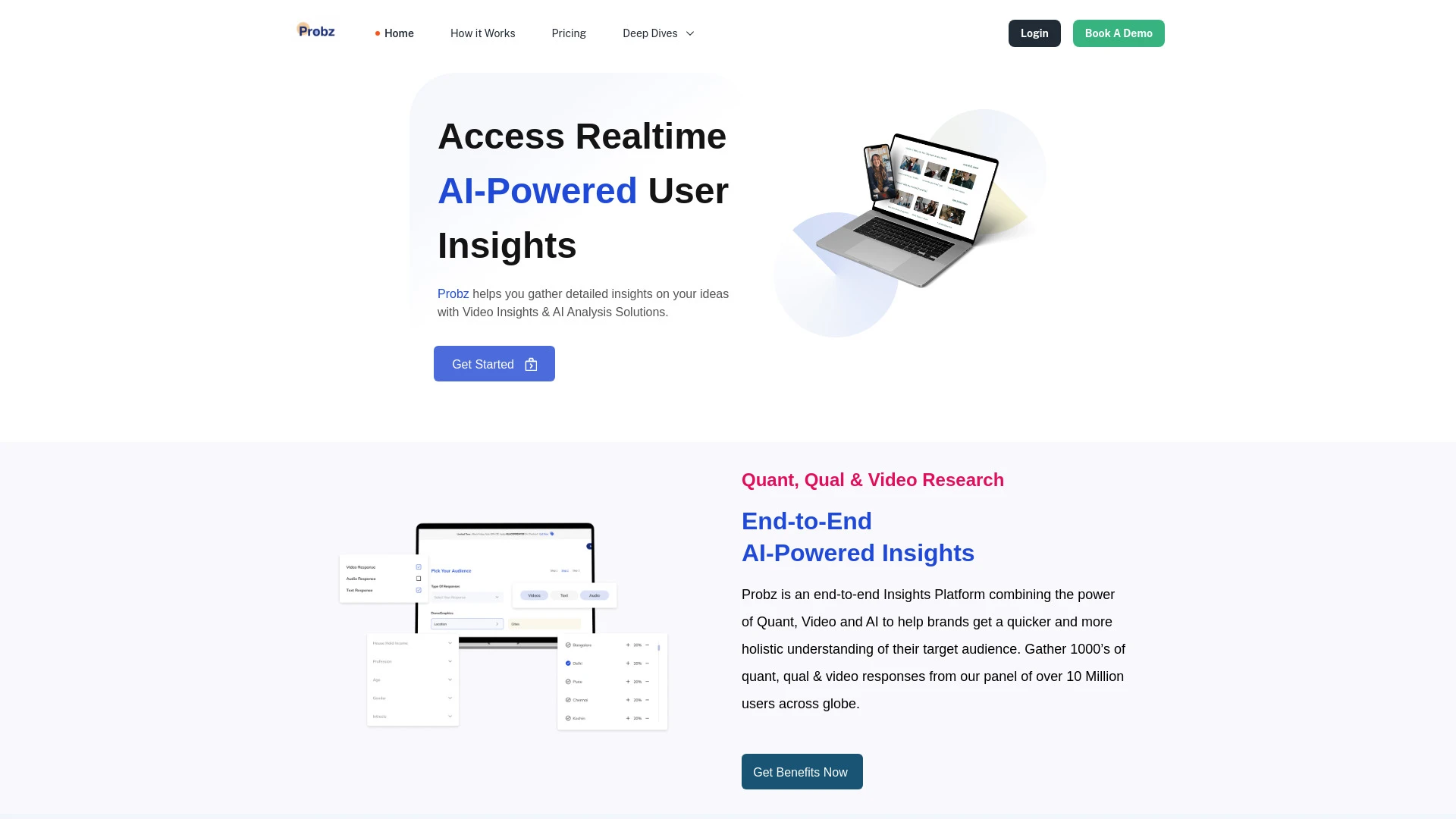Prolific versus Probz
Prolific, launched in 2014, connects researchers with participants for studies, focusing on academic research markets. Probz, newer to the scene, targets consumer insights by engaging audiences through surveys and feedback. Both platforms cater to researchers but vary in approach, with Prolific emphasizing rigorous studies, while Probz aims for broader consumer insights.


Prolific
Ideal For
Academic research
Training AI models
Collecting reliable experimental data
Developing diverse datasets
Key Strengths
Trustworthy participant sourcing
High-quality data collection
Time-efficient study launch
Core Features
Vetted participant pool
High-quality human data
Fast study launch
Diverse filtering options
Integration with tools
Probz
Ideal For
Refining pricing strategy
Enhancing product development
Optimizing marketing & branding
Exploring new initiatives
Key Strengths
Comprehensive audience insights
Access to a vast panel of respondents
Multi-method research capabilities
Core Features
AI-Powered Insights
End-to-End Insights Platform
Quantitative, Qualitative & Video Research
User Feedback Analysis
Instant Insight Generation
Popularity
At a Glance
Prolific excels in high-quality participant recruitment for academic studies, offering a diverse, reliable user base. Pros include targeted samples and ethical guidelines; cons involve higher costs. Probz, meanwhile, focuses on community engagement and quick feedback mechanisms, ideal for market research with a more informal approach. Pros are speed and flexibility; cons include potential data reliability issues. For academic purposes, choose Prolific; for marketing insights, opt for Probz.
Pricing and Subscription Plans
Prolific offers straightforward pricing with participant fees starting from £1.50 per response, plus a 20% service fee. It caters well to all business sizes. Probz features a subscription model with plans ranging from $49/month for small businesses to $199/month for larger enterprises, adding costs for additional features. Prolific is typically more cost-effective for small-scale studies, while Probz scales with larger budgets.
Performance Metrics
Prolific excels in speed and accuracy for participant recruitment, offering a quick turnaround on data collection. Its reliability is high due to a vetted participant pool. Probz, however, shines in specific niche studies where targeted demographics are needed, often outperforming Prolific in specialized accuracy. Overall, Prolific is preferred for broad studies, while Probz fits tailored research.
User Experience
Prolific offers a clean, user-friendly interface with intuitive navigation, making it easy for users to create and manage studies. Its customization options are limited but effective for standard research needs. Learning curves are minimal due to straightforward design. Probz, while also user-friendly, features more complex navigation and stronger customization tools, but might require more time to master. Both platforms provide solid user support resources, including guides and FAQs.
Integrations and Compatibility
Prolific integrates seamlessly with platforms like Slack, Google Sheets, and Qualtrics, enhancing workflows for researchers. Probz offers API access and supports integrations with tools like Zapier, making it adaptable for various systems. Both prioritize user-friendly compatibility.
Limitations and Drawbacks
Prolific's key limitations include limited participant demographics and slower response times, while Probz may face issues with data quality and sample size constraints. Workarounds include diversifying recruitment channels and optimizing survey design for better engagement.